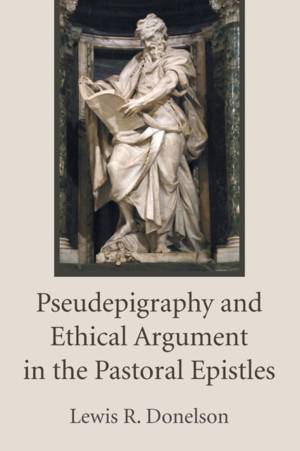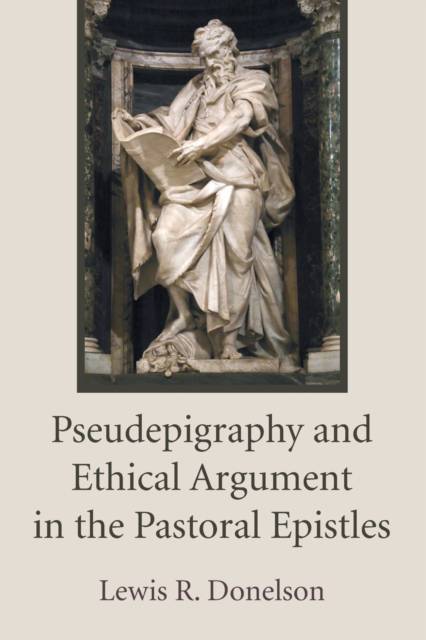
- Afhalen na 1 uur in een winkel met voorraad
- Gratis thuislevering in België vanaf € 30
- Ruim aanbod met 7 miljoen producten
- Afhalen na 1 uur in een winkel met voorraad
- Gratis thuislevering in België vanaf € 30
- Ruim aanbod met 7 miljoen producten
Zoeken
€ 36,45
+ 72 punten
Uitvoering
Omschrijving
By employing analyses of the literary structure of ancient pseudepigraphical letters and of the logical structure of ethical argument, this study discovers in the Pastoral Epistles a consistent theological ethic that has cosmological and cultic grounding. First, an investigation of Greco-Roman religious pseudepigraphical letters identifies those literary patterns that determine the form of argumentation in the Pastoral Epistles. Second, an investigation of the structure of ethical argument produces categories for organizing and analyzing the apparently disorganized arguments in these letters. Finally, this study concludes that the author of the Pastoral Epistles builds a coherent theological ethic by falsifying Pauline history and by grounding his ethical warrants in church officers.
Specificaties
Betrokkenen
- Auteur(s):
- Uitgeverij:
Inhoud
- Aantal bladzijden:
- 230
- Taal:
- Engels
Eigenschappen
- Productcode (EAN):
- 9781498238205
- Verschijningsdatum:
- 29/09/2015
- Uitvoering:
- Paperback
- Formaat:
- Trade paperback (VS)
- Afmetingen:
- 155 mm x 229 mm
- Gewicht:
- 340 g

Alleen bij Standaard Boekhandel
+ 72 punten op je klantenkaart van Standaard Boekhandel
Beoordelingen
We publiceren alleen reviews die voldoen aan de voorwaarden voor reviews. Bekijk onze voorwaarden voor reviews.











